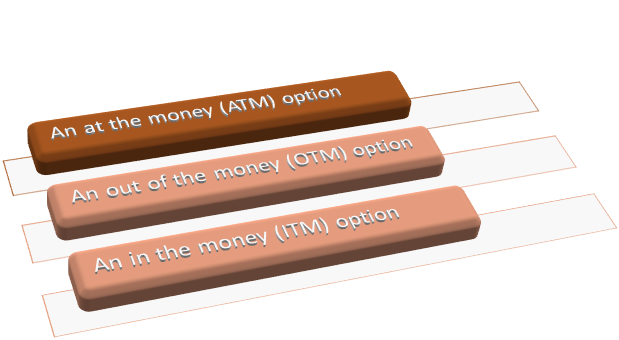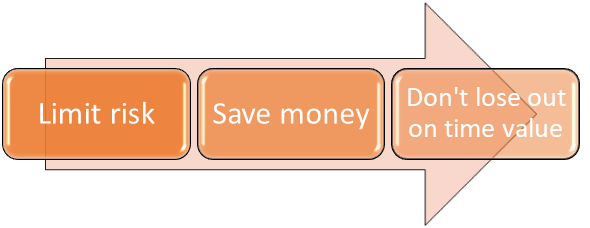What is early exercise?
The practice of selling or buying shares of stock under the terms of an option contract before its expiration date is known as early exercise.
Furthermore, an "early exercisable" stock option is comparable to any other stock option given to a consultant, employee, director, or other advisor, with the distinction that the holder of the option might exercise it before it has fully vested.
Summary
- The act of selling or buying shares under the terms of an options contract before its expiration date is known as early exercise.
- Only American-style options allow for early exercising.
- When an option's strike price and expiration date close together, early exercise makes sense.
Frequently Asked Questions (FAQs)
What does it mean to "exercise" your options?
In the world of finance and investment, exercising an option simply refers to the act of putting into practise the right, but not the responsibility, to sell or buy the underlying financial security of the connected options contract.

Source: © Ivzfoto | Megapixl.com
What is the mechanism of early exercise?
An options contract's essential terms are simple, and they work in the following manner:
Call options
The holder of an options contract does have the right to request that the underlying stock be purchased at the strike price.
A call option enables the trader the right. Still, it's not the responsibility to acquire an underlying asset such as a bond, stock, commodity, or other financial instruments at a certain price or striking price on or before a certain date.
Put options
The holder of an options contract can request that the underlying stock shares be sold at the strike price.
A put option gives a trader the right, but it's not the duty to sell an underlying asset at the strike price on or before a certain date.
Furthermore, an option can also be divided into three categories based on how close its strike price to its stock price:

Source: Copyright © 2021 Kalkine Media
What may early exercise be used for?
Only American-style options contracts, not European-style options contracts, support early exercise, because American-style options can be exercised at any time until the contract's expiration date.
With European contracts, however, the contract holder can only exercise his or her options on the expiration date. As a result, early execution of European-style options contracts before the expiration date is not permitted.
The large bulk of traders do not execute their options early. Instead, traders will benefit from the trade by shutting it and selling their options. Their purpose is to gain from the gap between the selling price and the price they paid for the option in the first place.
Instead of exercising the option, the owner of a long put or call ends the trade by selling. Considering the amount of time value left in the lengthy option lifespan, this trade frequently yields a higher profit—the bigger the remaining time value in the option, the more time there is before it expires. When you use that option, you lose that time value automatically.
What kind of early exercise is available for employee options?
Another example of early exercise is when employees are given company-awarded stock options (ESO). Employees may utilise their granted stock options before they are fully vested if the plan allows it. This option can be used to gain more favourable tax treatment.
Furthermore, the employee will be responsible for the cost of purchasing the shares before becoming fully vested. Additionally, any purchased shares must adhere to the company's plan's vesting schedule.
When neglecting the time value of money, early exercise inside a corporate plan costs the same as waiting till after vesting. Therefore, it could be possible to avoid short-term taxation and the alternative minimum tax because the payment is made now. But, of course, this raises the possibility that the business will no longer exist when the shares are entirely vested.

Sources: © Sbotas | Megapixl.com
What are the advantages of early exercise?
Early exercise may be favourable for a trader in the following circumstances:
For instance, a trader could decide to execute a call option that is fully in the money (ITM) and approaching expiration. Since the option is ITM, its time value is usually minimal.
Another rationale for early exercise could be the underlying stock's upcoming ex-dividend date. Because option holders are not liable to the underlying company's special or regular dividends, the investor can benefit from the dividend. It should be sufficient to compensate for the marginal time value lost due to an early exercise.
What are the reasons for not exercising the calls early?
Limit your risk
It makes little sense to exercise your call before it expires if it is in the money (ITM). If you buy the stock early and execute your in-the-money call, but the stock falls below your strike price before expiration, you'll be in big trouble.

Source: Copyright © 2021 Kalkine Media
Save your money
You will spend money sooner rather than later if you execute a call early and buy the shares. You know how much you'll pay for the stock, specifically the strike price of the call. So, before you pay for those stocks, it's a good idea to keep your money in an interest-bearing account for as long as feasible.
Disciplined investors search for every chance to get the most out of their investments, and this one is a no-brainer.
Don't lose out on time value
By exercising a call too soon, you risk losing money due to the time value remaining in the option's price. The call will be traded for more than the amount it is in-the-money if there is any time value. So, if you want to buy the stock right away, you could sell the call and use the funds to buy the stock. When you consider the extra time value, the overall cost of the stock will be lower than if you executed your call outright.
 Please wait processing your request...
Please wait processing your request...